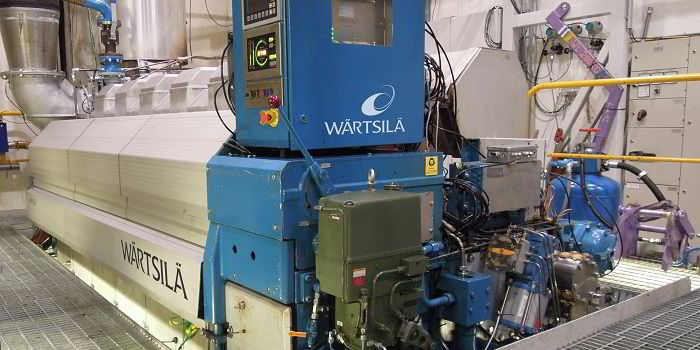The trio will head a two year pilot programme to accelerate the development of sustainable, scalable and affordable marine bio-fuels.
"Bio-fuels are today not part of the marine fuel mix that operators and owners can choose and this means that shipping is missing an opportunity to utilise what should be an environmentally friendly fuel option," Wartsila said.
The programme's focus will be on identifying suitable marine bio-fuels, securing industry certification, and preparing the building blocks for large-scale production.
Additionally, the consortium will initiate a global scalability study involving leading ship owners, universities, NGOs, ports, bio-fuel companies and other industry stakeholders.
Wartsila says the aim will be to identify tangible opportunities for scaling supply to the world's commercial shipping fleet.
The consortium is expected to test several next generation bio-fuels made from industrial waste streams, at the Wartsila laboratory in Vaasa, Finland before sea trials are carried out on vessels within the Boskalis fleet.
"With the objective of developing a fuel mix that is fully sustainable, the programme seeks to promote a reduced carbon footprint, up to 90% versus fossil fuels, for the maritime sector," Wartsila said.
"The consortium believes that these bio-fuels will play a viable role in lowering emissions to levels that no other fuel can currently achieve without a capital-intensive fleet renewal or retrofitting."
GoodFuels Marine chief executive Dirk Kronemeijerm commented: "We believe that the shipping industry is ready and well-placed to embrace truly sustainable, long term alternative fuels that can meet all stringent technical, economical and sustainability standards, just as witnessed in the sustainable jet fuel market five years ago."
Theo Baartmans, chief operating officer of Boskalis, added: "We strongly believe in the need for sustainable 'drop in' marine bio-fuels and their potential as part of the long term fuel mix, as we see them as an important means of improving the sustainability of the industry."
Drop in bio-fuels are liquid hydrocarbons that are functionally equivalent to petroleum derived fuels, meaning that they can be effectively interchanged with conventional fuels. Minimal engine modifications may be necessary in some cases.



